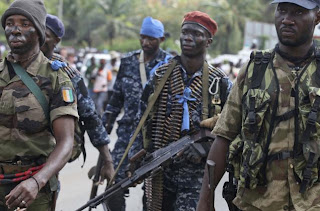In early April, in the final days of Côte d'Ivoire's torturous four-month-long political crisis, French and UN helicopters bombarded the presidential residence in Abidjan. This military operation sealed the fate of the incumbent, Laurent Gbagbo, paving the way for Alassane Ouattara, the widely recognized winner of the November 2010 presidential elections, to claim office. But the French and UN action had another effect: it triggered commentary and outrage about international interference -- in particular on the part of France -- in African affairs. Ivoirian newspapers backing Gbagbo fulminated about France's desire to retake its former colonies. The French press, meanwhile, obsessed about whether France's military intervention spelled a new era of Françafrique, the term, first introduced in the 1950s, for French interference in the internal affairs of its former African colonies. The New York Times ran a story about France's "long shadow" over its former colonies, and pundits around the world worried that these international actions could doom Ouattara's legitimacy.
Such a Eurocentric focus, however, both mischaracterizes the internal dynamics of the conflict and misses the more significant diplomatic development -- namely, the role of African regional organizations. In the end, France and the UN did not win the war for Ouattara and his self-styled "Republican Forces." By the time France and the UN intervened, Ouattara's forces controlled 90 percent of the country and were on the verge of taking the commercial capital, Abidjan. International forces did manage to hasten Gbagbo's demise: in effect, accomplishing the inevitable and preventing a final attack on Abidjan, which would have resulted in a terrible humanitarian crisis.





1 comentarios:
By: Angely Mora
COMPLEX VERBS:
- WOULD HAVE RESULTED: PODRIA TENER RESULTADO (Modal + present perfect)
- DESIRE TO RETAKE: DESEO DE RETOMAR (Present + Infinitive)
Publicar un comentario